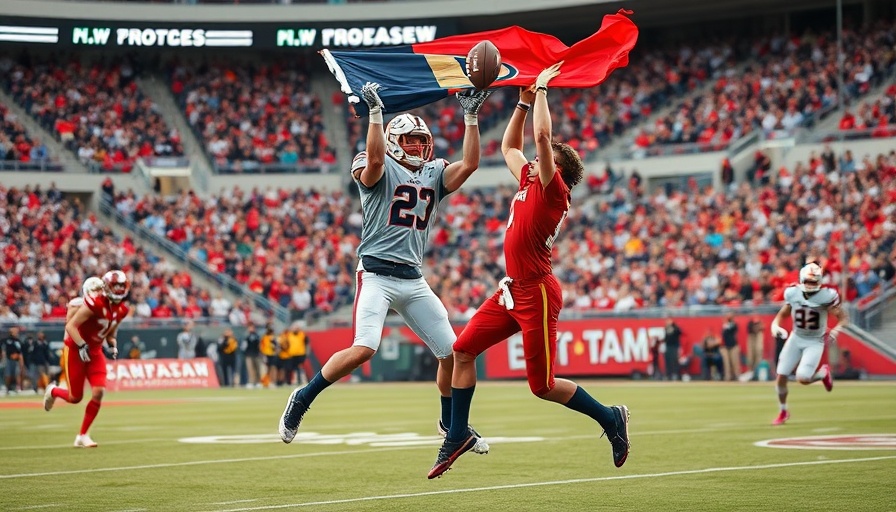
Flag Football Takes Center Stage at Nigeria's National Sports Festival
The recent approval of flag football as a demonstration sport at the National Sports Festival is a historic milestone for Nigeria's sporting landscape. Set to take place from May 16 to 30 in Abeokuta, this event marks the first time flag football will be featured in the country's largest sports gathering. This decision, propelled by the leadership of Aziz Amida and the Showtime Flag Football League, highlights a cultural shift in how non-traditional sports can gain recognition in Nigeria.
In 'Flag Football Debuts at National Sports Festival in Nigeria', the discussion dives into the groundbreaking introduction of flag football at a national level, exploring key insights that sparked deeper analysis on our end.
Embracing the Global Trend of Flag Football
Flag football is rapidly emerging as one of the fastest-growing sports worldwide, and Nigeria is no exception. The sport's inclusive nature - accommodating both genders and players of various ages and sizes - has been pivotal in its growth. The National Sports Commission's endorsement could catalyze a bigger push for flag football beyond its current grassroots involvement, giving it visibility on a national and international platform.
Collaborative Efforts to Propel Growth
A recent meeting between the National Sports Commission and key stakeholders, including the Nigeria America Football Association (NAFA) and Showtime Flag Football, emphasized future collaborations aimed at promoting the sport further. The aim is to capitalize on the excitement generated by the demonstration event to forge a robust framework for ongoing development. Potential partnerships may focus on nurturing local talent and establishing sustainable funding mechanisms for the sport.
The Need for a Strong Performance
Demonstrating competence and skill at this festival is crucial for flag football to transition from demonstration status to a full-fledged event in future festivals. Adequate representation from various states, including Lagos, Abuja, and others, adds competitive variety and should showcase the sport’s talents. Successful execution at the National Sports Festival could potentially lead to stronger advocacy for flag football at the national level, positioning it favorably for future Olympic inclusion.
Integrating Flag Football into Nigeria's Sports Fabric
Flag football’s rise in Nigeria also resonates due to its capacity for social connection and community engagement. With states like Akwa Ibom and others already hosting local tournaments, the involvement of youth in sports is expected to address broader national priorities, including youth empowerment and health promotion. The inclusion of a co-ed format in these tournaments aims to break down barriers within sports and ensure everyone, regardless of gender, has the opportunity to participate.
The Future of Flag Football in Nigeria
As Nigeria sets its eyes on the potential for flag football to feature in the 2028 Olympic Games, the time is now for stakeholders to fully embrace and promote the sport across the nation. If flag football can maintain momentum from its demonstration performance, it could pave the way for increased state funding and a structured pathway for athletes from grassroots to professional status. With the festival serving as a litmus test, the stakes are high but so are the opportunities for a sport in its infancy in Nigeria.
The journey of flag football in Nigeria is only just beginning. As it gears up for its debut at a national level, the collaboration between various stakeholders will be key to its success. The excitement surrounding this event is palpable, and as the sport captures the hearts of Nigerian youths, it may very well carve its niche into the very fabric of the nation’s sporting identity.
 Add Row
Add Row  Add
Add 


 Add Row
Add Row  Add
Add 

Write A Comment